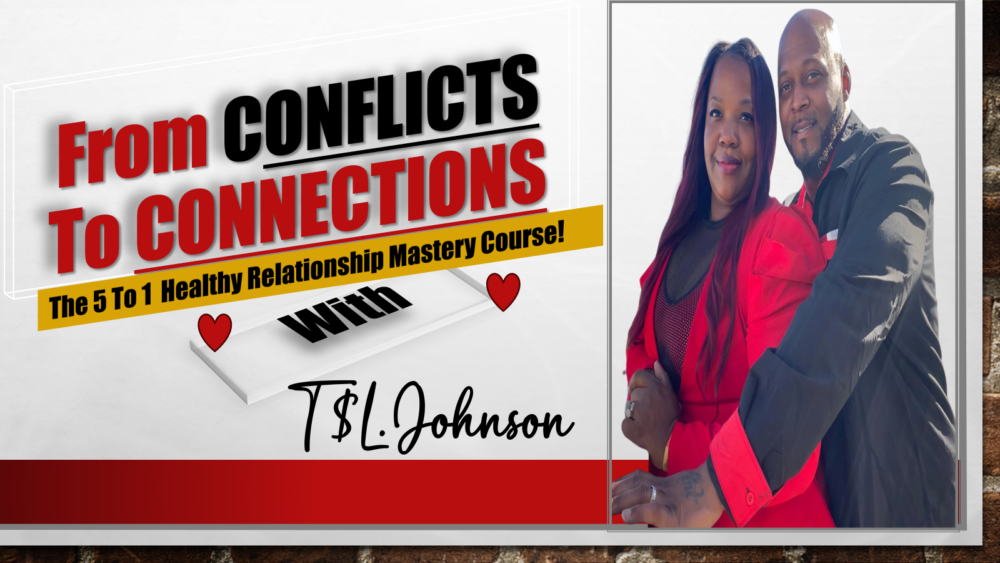Connection at a Deeper Level
Understanding Each Other’s Core Values
In my experience, a conversation that feels like coming home starts with understanding each other’s core values. You know, those things that make us tick? When we can talk about what truly matters to us, it’s like opening a door to a deeper relationship. Think about those late-night talks where you find common ground on things like family, integrity, or simply what it means to be a good person. It’s not just surface stuff; it’s raw and real.
Finding these values often requires vulnerability. Sometimes, we’re hesitant to share what’s going on inside our heads, fearing judgment or misunderstanding. But the truth is, when I take that leap of faith and express my core beliefs, it often invites others to do the same. It’s like setting the tone for the conversation.
When we recognize and respect these values in each other, it strengthens our bond. I’ve seen friendships deepen and evolve during these discussions, creating relationships that feel safe, warm, and genuinely welcoming. That’s magic right there!
Sharing Experiences and Stories
Sharing our stories is another powerful aspect of these conversations. I often like to think of each person’s story as a unique tapestry woven from experiences, challenges, and victories. By sharing my own journey, I invite others to reveal theirs, creating a space where both of us can resonate with the highs and lows of life.
These narratives have a way of reinforcing empathy and understanding. When I recount a personal struggle or a happy moment, it often sparks a similar reflection in the other person. We find ourselves saying, “Me too!” and that’s how we connect on a human level.
Furthermore, the act of storytelling often brings us laughter or tears, making the conversation not just a dialogue, but an emotional experience. For me, these moments stick with me—they’re the highlights of my relationships.
Creating a Safe Space
A safe space is essential for any meaningful conversation. I remember a time when I felt comfortable enough to open up about my insecurities, and that moment transformed my relationship with the person I was talking to. They responded not with judgment, but with support and understanding. That’s the beauty of a safe space; it allows authenticity to flourish.
We have to be intentional about creating this atmosphere. It can be as simple as choosing the right location, turning off our phones, and giving our undivided attention. When I commit to being present, it’s like wrapping the conversation in a cozy blanket of trust.
Moreover, it’s important to check in with each other’s comfort levels. Asking questions like, “How do you feel about this topic?” or “Is this too personal?” can really make a difference. Establishing these boundaries shows respect and reinforces the idea that we’re both in this together.
Empathy and Understanding
Listening to Understand, Not Just to Respond
One of the most profound lessons I’ve learned over the years is that listening is an art. When I approach a conversation with the mindset of truly understanding the other person rather than just waiting for my turn to talk, everything changes. It’s about being present and absorbing the message being conveyed.
Listening actively means paying attention to not just the words, but the tone, body language, and emotions behind those words. It’s like picking up on the unspoken cues that add depth to what’s being said. I’ve often found that when I lean into this, conversations lead to significant breakthroughs—like peeling back layers of an onion.
Additionally, showing empathy rather than sympathy allows the person to feel seen and heard. When I genuinely connect with their feelings rather than offering a hollow response, it opens doors to trust and compassion. I think that’s where the magic lies!
Validating Emotions and Experiences
Validating someone’s feelings is like giving them a warm hug with your words. Often, we underestimate the impact of simply saying, “I understand how you feel.” In my journey, I’ve realized that validating someone’s experiences can create an immediate bond. It’s acknowledging that what they’re feeling is real and important.
I remember a friend who was going through a tough breakup, and instead of trying to “fix” the situation, I just listened. I reflected back what she said and validated her emotions. She later told me that it felt so comforting to know that her feelings weren’t brushed aside. Sometimes, that’s all we really need—someone who hears us.
By validating emotions, I make it clear that I respect their individuality. This opens the floor for deeper exploration of feelings and promotes a lively back-and-forth exchange, making the conversation even more meaningful.
Offering Support and Encouragement
Conversations that feel like coming home often involve a level of support and encouragement. When someone shares their struggles, it’s incredibly fulfilling for me to offer guidance or even just a shoulder to lean on. I’ve learned that sometimes people just need to hear, “You’ve got this, and I’m here for you.”
Offering support doesn’t mean I have to have all the right answers. Often, it’s about being there for them, reassuring them that they’re not alone in their journey. In my own life, knowing that there are people cheering me on has made all the difference during tough times.
Encouragement can also come from sharing resources or ideas that might help. Whether it’s recommending a good book or simply brainstorming together, it creates a sense of partnership, enhancing the overall experience of the conversation. That feeling of connection is what truly makes these chats feel like home.
Finding Common Interests
Discovering Shared Passions
In the hustle and bustle of life, we often forget to explore what brings us together. One of the joys I find in conversations is discovering shared interests. I remember striking up a chat with a colleague and realizing we both had a love for hiking. Suddenly, our talks evolved beyond work, and we found ourselves exchanging stories about trails, gear, and our favorite nature spots.
Common interests act as a bridge, connecting our personalities in a way that feels effortless. They spark discussions that flow naturally, and if there’s one thing I love, it’s being able to share excitement over similar hobbies or passions.
Moreover, engaging in these discussions often leads us to try new things together. Whether it’s planning a hiking trip or attending a cooking class, shared interests cultivate collaboration and fun, ultimately bringing us closer together.

Engaging in Meaningful Activities Together
Meaningful activities often enhance our conversations. I’ve found that engaging in shared experiences can stimulate deeper discussions and help us bond. For instance, volunteering for a local charity can ignite conversations about values, struggles in our community, and ways we can make an impact. It’s powerful!
Sometimes, conversations during activities lead to unexpected moments of laughter, introspection, or even conflict that need addressing. I’ve seen these moments turn into rich dialogue that strengthens relationships. Plus, they provide a backdrop for relaxed conversation, making it easier to open up.
The experience of bonding over activities reminds us that conversations happen not just over coffee talks but in shared adventures, which I find tremendously rewarding.
Being Open to New Experiences
As someone who believes in lifelong learning, being open to exploring new experiences with friends or loved ones creates an exciting dynamic. I’ve often found that trying something new—like attending a workshop or taking a class—carries its share of adventures that infuse our conversations with fresh energy.
For me, the willingness to step out of our comfort zones is critical. I remember participating in a pottery class with a friend, where we ended up creating hilariously terrible pieces of art. We laughed so hard that it became the highlight of our week. Those memories are priceless, and they fuel conversations long after the activity is done.
The beauty of exploring new territories is that it encourages a sense of camaraderie. I think these shared endeavors ultimately contribute to how conversations can feel like coming home; they invoke familiarity and shared excitement, building that treasured emotional connection.
Building Longevity of Relationships
Consistent Communication
When it comes to building lasting relationships, consistency in communication is key. One takeaway from my experience is that it’s not just about those epic conversations but also the small, regular ones that matter. I’ve made it a habit to check in with friends, ensuring we have those lighthearted chats that keep our bond alive.
Sending a simple text to ask how someone’s day is going or scheduling regular catch-ups can frequently rekindle warmth in our relationships. I’ve noticed that these consistent efforts resonate deeply; it’s almost like nurturing a plant. The more care you give, the more it flourishes.
Ultimately, making time to connect regularly shows that we value our relationships and commit to growing together. That’s how long-term bonds are forged, and it’s incredibly fulfilling!
Being Accountable to One Another
Accountability doesn’t have to be heavy; it can be uplifting and supportive. I’ve found that when I have someone to share my goals and aspirations with, it not only motivates me to push forward but also gives the other person a role in my journey. This mutual accountability creates a sense of partnership in our development.
For instance, setting up a weekly call to discuss our goals can become a great space for celebration and reflection. I remember working on fitness goals with a friend, and our check-ins kept us both motivated and responsible. That collaborative approach holds us accountable while also serving as a great source of encouragement.
When we keep each other accountable, we build trust and reliance, reinforcing the idea that we’re in this together. These dynamics enhance the depth of our relationships, making them feel like home.
Embracing Change and Growth Together
As life goes on, change is inevitable, and so is personal growth. Embracing these changes with openness can either make or break relationships. I’ve had friends change careers, move cities, or evolve their beliefs, and I’ve learned to celebrate these transformations rather than resisting them.
Having conversations about these changes helps us adapt and grow together. When a friend shares their career transition, I’ve found that discussing their aspirations encourages them and reinforces my role as a source of support. Celebrating their courage fosters deep connections while letting them know that I’m in their corner.
Being open to change also prompts enriching discussions about how we both envision our futures. Exploring these territories together not only strengthens our bond but enhances our ability to support one another through any life transition.
Conclusion
In my journey of navigating relationships and conversations that feel like coming home, I’ve discovered the profound impact these elements have on creating genuine connections. From fostering empathy, sharing experiences, and finding common interests, each aspect contributes to building lasting relationships. Whether we’re exploring new passions or embracing change, what truly matters is the warmth we cultivate in our dialogues.
Frequently Asked Questions
1. What are “Conversations That Feel Like Coming Home”?
They are deep, meaningful dialogues characterized by understanding, empathy, and a strong sense of connection, often making us feel safe and accepted.
2. How can I initiate deeper conversations?
Start by being open and respectful about each other’s core values. Share personal stories and encourage vulnerability; this will foster a deeper connection.
3. Why is active listening important in conversations?
Active listening ensures that you truly understand the other person’s perspective and feelings, building trust and encouraging them to share more openly.
4. How can I create a safe space for conversation?
Establish trust through respect and understanding. Set boundaries on topics, and make sure to give your undivided attention without distractions.
5. What’s the value in sharing interests and experiences?
Sharing interests and experiences enhances our relationships, making conversations more engaging and memorable while fostering a sense of camaraderie.

Schedule Your First 20-Minute Coaching
Call With Us Today to see if we fit . You pick the price!
Click Here




